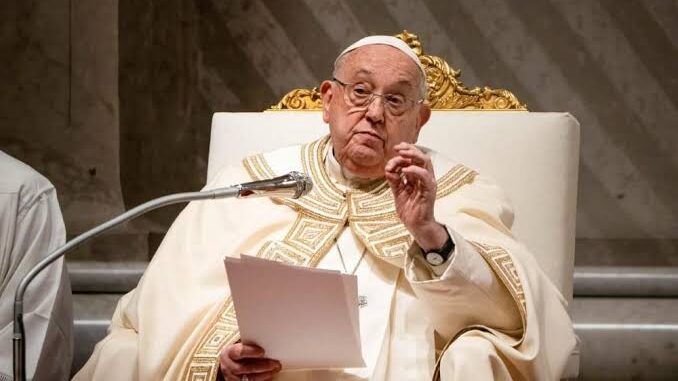
Pope Francis, the 88-year-old leader of the Roman Catholic Church, is currently in critical condition at Rome’s Gemelli Hospital due to a severe lung infection. The Vatican has reported that the pontiff is conscious and receiving high-flow supplemental oxygen following a prolonged asthmatic respiratory crisis. Recent blood tests have also indicated early signs of kidney failure, adding to concerns about his health.
Despite his frail state, Pope Francis has remained alert and engaged. He has been able to get out of bed, read newspapers, and work with his closest staff. Notably, he managed a 20-minute meeting with Italian Prime Minister Giorgia Meloni, during which he was described as being in good spirits and maintaining his sense of humor.
The Pope’s medical history includes significant respiratory issues; he had part of one lung removed during his youth due to pleurisy, making him particularly vulnerable to pulmonary complications. His current condition has led to an outpouring of prayers and support from around the world. San Antonio Archbishop Gustavo García-Siller has called for prayers to support and strengthen the Pope, coinciding with the feast of the Chair of St. Peter, a day that honors the first Pope and his successors.
In light of his health challenges, discussions regarding Pope Francis’s potential resignation or the selection of his successor have emerged. The College of Cardinals, responsible for electing a new pope, is reportedly engaged in behind-the-scenes conversations to secure a successor. Notable figures such as Cardinal Matteo Zuppi and Cardinal Sean O’Malley have been subtly positioning themselves as potential candidates through public engagements.
The Vatican continues to monitor Pope Francis’s condition closely, providing regular updates to the public. While his situation remains critical, the global Catholic community remains hopeful for his recovery, united in prayer and support for their spiritual leader during this challenging time.
Be the first to comment